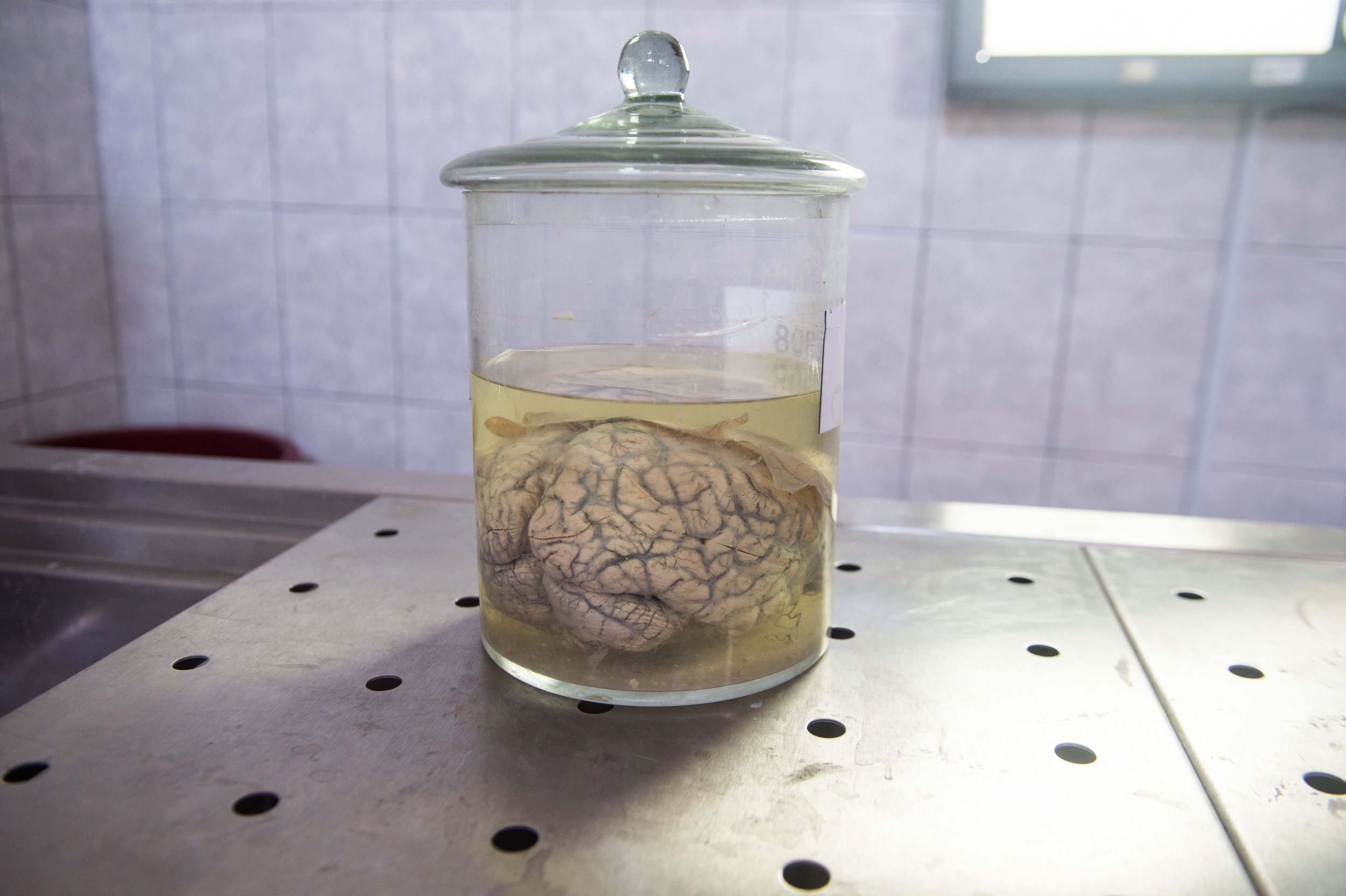
Researchers have identified brain cell behavior that could potentially play a crucial role in the onset of Alzheimer's disease. The finding suggests that cell breakdown—not plaque buildup—may be the initial cause of Alzheimer's. Most promising, the team also figured out a way to protect cells from this breakdown, pointing toward a new therapeutic approach to preventing and treating Alzheimer's.
New research conducted by a team from Arizona State University-Banner Neurodegenerative Disease Research Center determined that decades before any recognizable symptoms of Alzheimer's occur, a toxic protein called oligomeric a-beta (OAβ) interferes with neural mitochondrial behavior. Mitochondria are the part of the cell that generates most of a cell's energy, so OAβ interference robs brain cells of their main energy source. As a result, this interference starts a chain of biological events that eventually lead to visible Alzheimer's disease symptoms, the study suggests.
Related: Alzheimer's science shocked by discovery that key protein behaves like an infection
"Mitochondria are the major source of energy in brain cells, and deficiencies in energy metabolism have been shown to be one of the earliest events in Alzheimer's disease pathobiology," study lead author Diego Mastroeni, a scientist at the ASU-Banner Neurodegenerative Disease Research Center, said in a statement.
The study, published online in Alzheimer's & Dementia, used human brain cells extracted from the brains of patients who had died of Alzheimer's. In their initial investigation, the team noted that these brain cells displayed far fewer mitochondrial genes than they had expected. Working backwards, they discovered that the reduction of mitochondrial genes was a result of exposure to the toxic protein OAβ.
Now that the team knew was caused the mitochondrial degradation, they were able to create a compound that prevented this from happening. When human brain cells were treated with this compound, the cell's mitochondria were protected from OAβ.
The finding is a promising candidate for a potential treatment. One of the most accepted ideas of Alzheimer's disease pathology has been that it is rooted in the onset of plaques and tangles in the brain created by the abnormal buildup of beta-amyloid proteins. However, this research presents an alternative idea, suggesting that mitochondrial malfunction, not plaque buildup, actually occurs first and may be a root cause of Alzheimer's.
Mitochondrial function naturally declines with age, but if this decline is accelerated, such as by interference from toxic OAβ proteins, it could lead to the plaques and tangles we've come to view as the hallmark signs of Alzheimer's.
At the moment, this is just one study, and the results do not unequivocally prove anything. However, having an alternative explanation for Alzheimer's could eventually lead to alternative medications for the disease—and perhaps even a medication that actually works—something we've yet to achieve.
Uncommon Knowledge
Newsweek is committed to challenging conventional wisdom and finding connections in the search for common ground.
Newsweek is committed to challenging conventional wisdom and finding connections in the search for common ground.
About the writer
To read how Newsweek uses AI as a newsroom tool, Click here.








